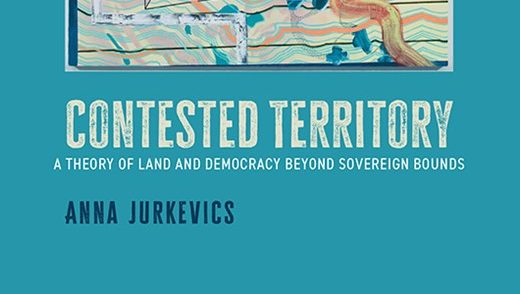We recently spoke with Assistant Professor Cesi Cruz about her forthcoming publication in Comparative Political Studies, Social Networks and the Targeting of Vote Buying.
Article:
Social Networks and the Targeting of Vote Buying, Forthcoming Comparative Political Studies. Article first published online: August 7, 2018. (Access full article here)
Abstract:
The social networks of voters have been shown to facilitate political cooperation and information transmission in established democracies. These same social networks, however, can also make it easier for politicians in new democracies to engage in clientelistic electoral strategies. Using survey data from the Philippines, this article demonstrates that individuals with more friend and family ties are disproportionately targeted for vote buying. This is consistent with the importance of other social factors identified in the literature such as reciprocity, direct ties to politicians, and individual social influence. In addition, this article presents evidence supporting an additional mechanism linking voter social networks to the targeting of vote buying: social network–based monitoring. Voters with larger networks are both more sensitive to the ramifications of reneging on vote buying agreements and are primarily targeted for vote buying in contexts where monitoring is necessary.
What is vote buying and how is it impacting consolidating democracies, and democracy more broadly?
Vote buying is the exchange of gifts or money for political support. This might be quite literal in the sense of politicians paying voters to vote for them, but it can also take subtler forms, such as giving known supporters bus fare to go to the polls, or hiring people as election workers. The key distinction between vote buying and other forms of patronage, pork barrel politics, or constituency service is that vote buying is typically considered to be a one-time transaction prior to the elections, rather than an ongoing relationship with the politician.
In what ways does your research address gaps in the literature on clientelism and illegal electoral strategies?
Coming from Canada or the U.S., we think of politics in terms of differences in policies and campaign platforms between different parties. But in most of the developing world, elections are held without meaningful political parties or policy cleavages, so patterns of support or opposition aren’t enough to explain electoral strategies. Instead, understanding politics requires unraveling a complex system of political and social relationships, expectations, and obligations, which is why I find social network analysis to be so helpful in these contexts.
How can your research help to address or remedy the issue of vote buying in consolidating democracies?
My work can contribute to understanding how voters are targeted for illegal electoral strategies, and vote buying in particular. But beyond the main results, the results on vote secrecy are also important in themselves. There have been a number of initiatives aimed at improving the way elections are conducted in the Philippines and other democracies in the developing world, including election monitoring, electronic voting, improving registration and voter education processes, etc. However, one relatively understudied area for reforms are procedural changes and information campaigns intended to improve perceptions of vote secrecy. Vote secrecy is central to the functioning of democracy and can be a powerful tool to reduce vote buying and other illegal strategies.
What advice do you have for graduate students looking to create research designs that address complex and multi-layered phenomena?
This is more general advice than just about the research design, but one thing that’s important to note about this paper is that it took me almost four years to get it published. It was a chapter in my dissertation, and it can sometimes be hard to transition from a dissertation to a publication, and in my case, it took me quite a bit of reframing in order to get the theory tight enough–the empirics by contrast were the easy part once I got the argument pinned down. Part of this was inexperience with the publication process, but also the fact that your job market paper and dissertation may sometimes suffer from an overabundance of feedback and attention: mine certainly looked a bit like a Frankenstein of a paper by the time I was done with it, and I needed a couple of rounds of rejections at different journals in order to pare it back down.


Cruz has been published in the American Economic Review, American Journal of Political Science, Comparative Political Studies, and the Review of International Organization. In 2017, her co-authored paper, “Village Social Network Structures and Electoral Competition,” won APSA’s Political Network Section’s Best Conference Paper Award.
Be sure to follow Cruz on Twitter @cesicruz to learn more about her area of expertise.


